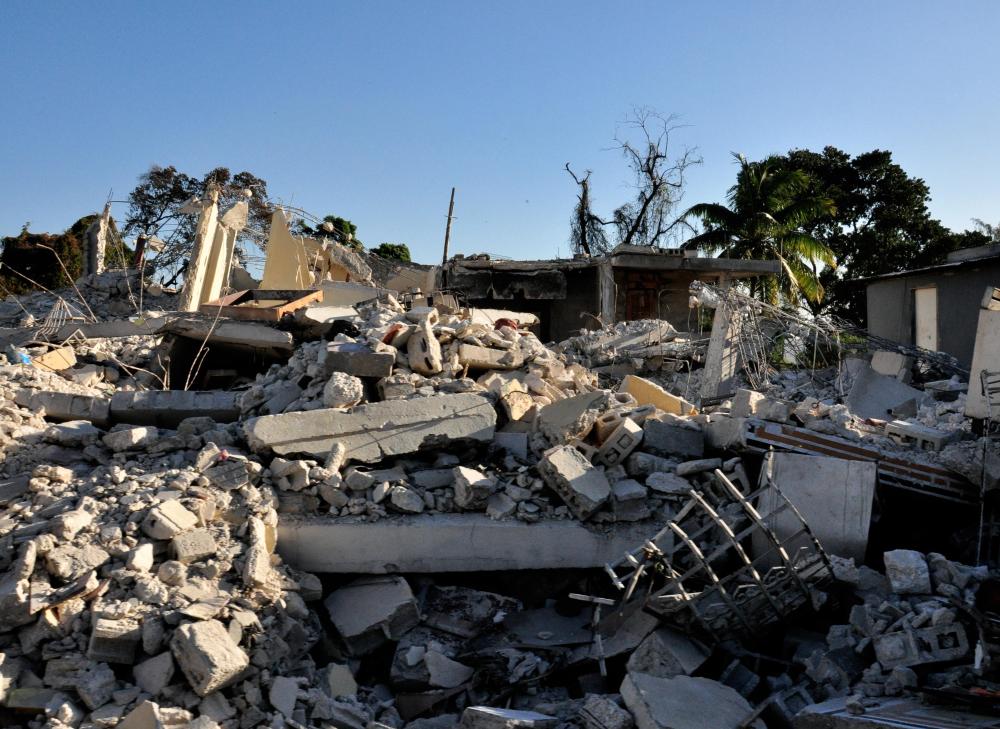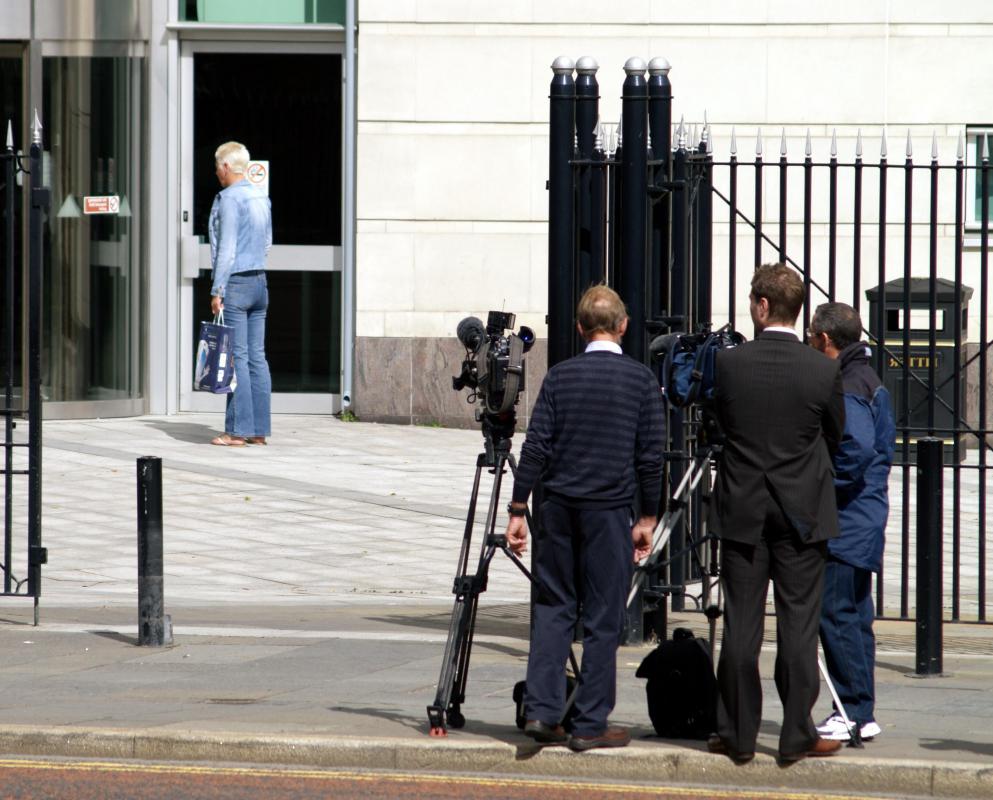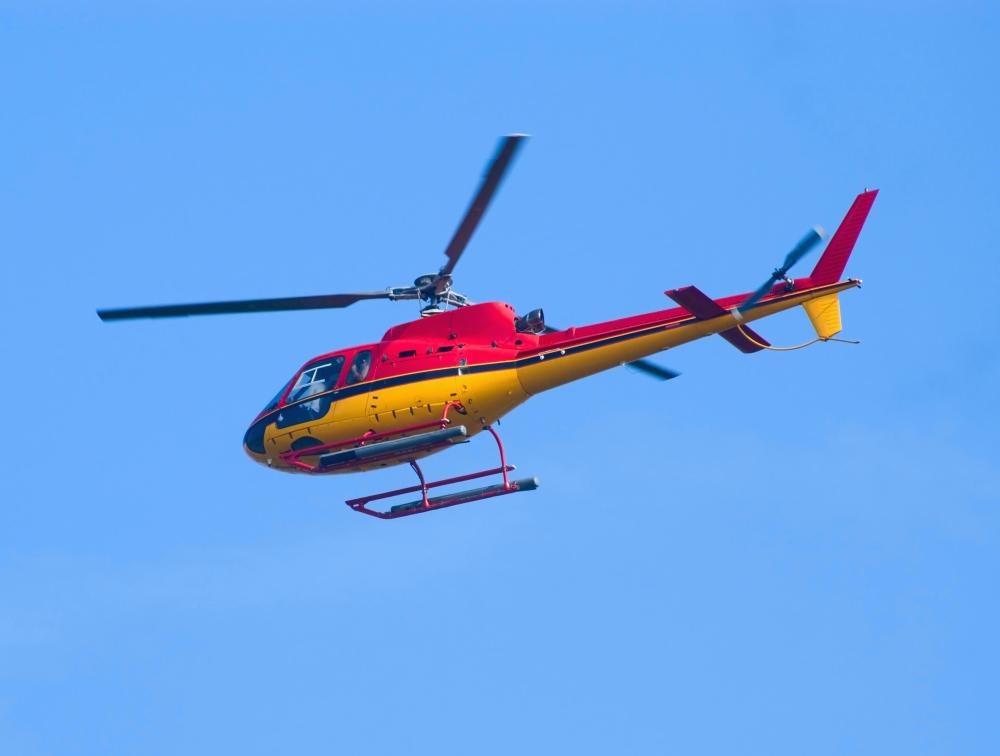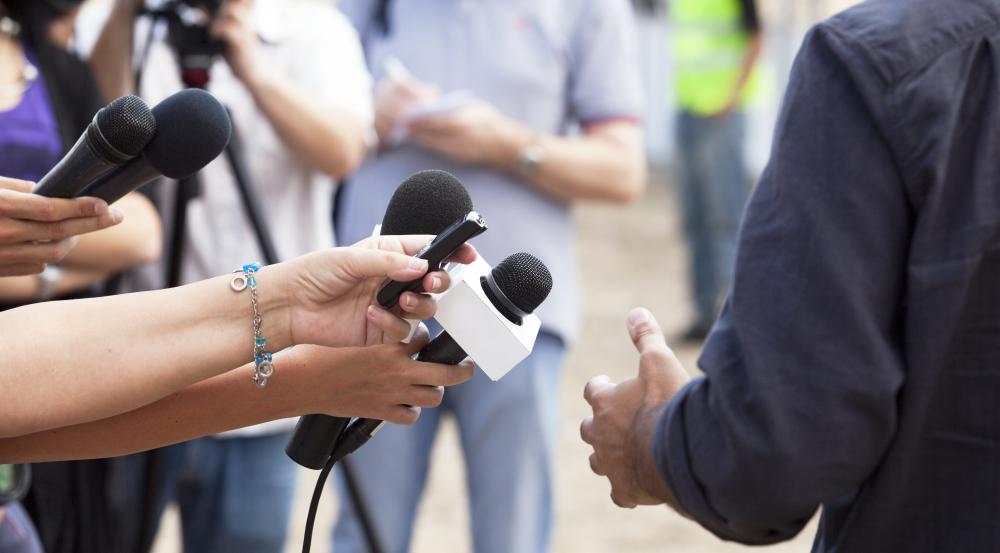At PracticalAdultInsights, we're committed to delivering accurate, trustworthy information. Our expert-authored content is rigorously fact-checked and sourced from credible authorities. Discover how we uphold the highest standards in providing you with reliable knowledge.
What does a TV Correspondent do?
A TV correspondent keeps the public informed through television broadcasts of what she and her employing station consider newsworthy. She may be a local news reporter who covers community news and events, or she may work for a large media organization that reports on news stories from around the world. Regardless of the locale in which she works, she is normally accompanied by audio and video personnel.
A correspondent may be a general news reporter or specialize in a particular topic. The latter normally applies if the station is large enough to have a staff of correspondents who only cover topics in specific areas, such as crime, medicine, politics or science. Sometimes correspondents are placed in a certain area to cover a story that is unfolding. This generally includes topics such as natural disasters, political unrest or international conflicts.

Depending on her industry contacts and the level of her equipment’s sophistication, a TV correspondent is generally expected to extract information for her broadcast from several sources. These typically include news wire services, remote or live question and answer sessions and interviews with people central to the subject of her report. Many correspondents prefer to report live from a location to add drama and value to their presentation and perhaps boost their station’s ratings.

Urgency and time constraints significantly affect most breaking television news stories. A TV correspondent’s success may largely depend on her ability to quickly research and write her story for immediate broadcast. She is regularly expected to take several film clips and intersperse them with audio explanations to flesh out a story and make it compelling for viewers.

Excelling as a TV correspondent customarily requires extraordinary composure and focus. Even if the broadcast is compiled of clips and tapes, those components are subject to external sources of disruption, such as weather, equipment failure and the noise of emergency vehicles or passersby. If the subject of the story involves natural disasters or hazardous surroundings, the correspondent’s ability to focus is key to the success of her performance.

A bachelor’s or master’s degree in journalism or liberal arts is normally required to be considered for a job as a TV correspondent. Independent or community-based stations with low budgets may consider applicants with less education. Experience in any type of reporting or news gathering environment is considered a plus for applicants. Some television stations may prefer to train and groom correspondents per their internal guidelines and policies.
AS FEATURED ON:
AS FEATURED ON:















Discussion Comments
I know that there are some really great TV journalists out there, but I have always thought that the TV news was the worst quality kind of news.
The stories tend to be under reported, relying too much on soundbites and easy images. The reporters tend to be selected more for their looks than their journalistic tenacity. And the demands of TV means that they have to always worry about the entertainment value of a story.
There are some great stories on TV, but there are also some terrible stories. It is a fine supplement, but I think you need more authoritative sources to really understand the news of the day.
I've always though that being a TV correspondent would be a pretty cool job. You would do something different every day and would probably see every corner of the city you covered.
In any given week a TV correspondent might go to a crime scene, a press conference, an eating contest, a tailgate party and an animal shelter. And the next week they would do completely different things. It would be thrilling.
@miriam98 - What I wonder about is how many people entering the journalistic profession actually wind up as TV correspondents or working in television news at all?
Clearly, they are a very, very small minority. I think the people who break into the television news business need to have a certain telegenic style about them, and some other qualities that they don’t teach you about in journalism school.
I am sure that not every journalist aspires to be on television, but those that do need to have the looks and some brains about how video technology works.
@hamje32 - Well, they certainly make it look easy, I’ll tell you that. Often when I watch a news broadcast I see the smooth transitions between the network news anchor, the TV journalist on location, and the switching to the video clips and the subsequent commentary, and it all looks carefully scripted.
Now and then there’s a technical glitch where audio or video does not come on as needed but that rarely happens. I don’t think I would have the kind of focus the article talks about to pull this kind of thing off so quickly. I don’t think well on my feet.
I think the hardest part of the job for a TV correspondent is to be on location with an immediate and accurate reporting of the news.
In today’s 24 hour cable news cycle, news is happening all the time. Wherever it happens, a correspondent needs to be there, even in dangerous conditions.
Often on television I will see a CNN correspondent in the middle of some war-torn region of the world or in some area where they’re in the thick of violent weather, and they have to be Johnny-on-the-spot to speak, with all the answers. That’s not easy.
Sometimes in their eagerness to get the story out before anyone else, the reporters will make wrong statements and then have to retract their statements later on.
Post your comments